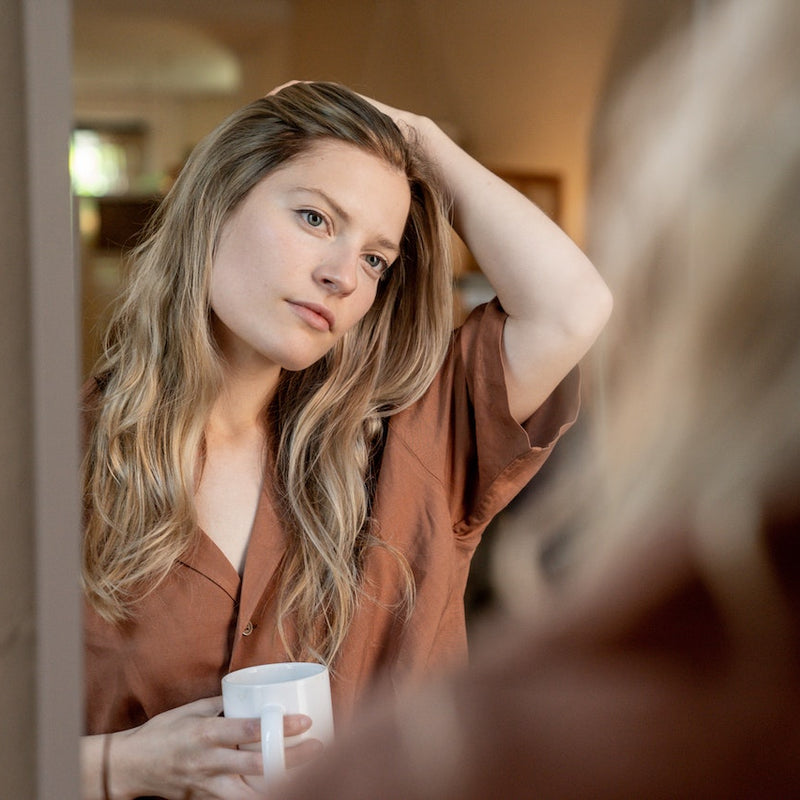What Age Should You Freeze Your Eggs?

By OBGYN Dr. Kenosha Gleaton
Cryopreservation (egg freezing) is a useful way to preserve fertility by saving mature eggs for later use. [1] There are a lot of factors to consider when thinking about cryopreservation, like the best age for egg freezing, how much it costs, insurance coverage, and more.
Understanding Egg Freezing
Egg freezing involves a few different steps [1]:
- Testing and screening so that healthcare providers can better understand the quality and quantity of the eggs.
- Stimulating the ovaries with the use of medications or hormones. These drugs help the body grow multiple mature follicles so that multiple eggs can be retrieved and frozen.
- Egg retrieval, a procedure done under general anesthesia. A small device is inserted in the vagina to retrieve multiple eggs.
- Cryopreservation is completed through a method known as vitrification. During vitrification, the eggs are rapidly cooled down to prevent the formation of ice crystals. The eggs are then stored until you’re ready to use them in the future.
There are many reasons someone may choose to freeze their eggs, from finances to health concerns, to general family planning. If someone is concerned about their egg quality or quantity declining before they feel they will be ready to start or grow their family, they may opt for cryopreservation. Egg freezing also gives people more than one try when TTC, as there are usually multiple eggs retrieved and frozen. You can read more about the reasons and benefits of egg freezing in this article.
The Best Age for Egg Freezing
Egg freezing is a personal decision that can be made at any time. One of the major benefits of egg freezing, and one of the most common reasons cryopreservation is sought out, is the ability to sort of “freeze time” in regards to egg quality. [1] It is true that the quality of eggs tends to decrease as we age, with a more rapid decline seen after the age of 35. [2] Research does show that there is a higher chance of live birth when egg freezing is performed at ages younger than 34. [3] Multiple fertility clinics tend to agree with this data and suggest that the best age for egg freezing falls somewhere between 27 and 34. [4-5]
Factors Influencing the Timing of Egg Freezing
Personal circumstances should also be taken into account. If you have a condition or illness that may alter your ability to conceive in the future, such as cancer, an autoimmune disease, etc., you may opt for egg freezing earlier on. You may also be able to freeze your eggs past the age of 35. Your healthcare provider will run some tests and screenings to determine what your chances may be for a successful egg retrieval. [1]
All of this being said, age does not always play a factor in why someone may want to freeze their eggs. Illness, gender diversity, and finances may also be a large part of the decision, to name a few. Some people may be at a point in their career or personal life when growing their family isn’t an immediate priority. Whatever the reasoning, fertility preservation is a serious decision that should require a lot of thought and conversation with your partner, family, and healthcare provider. You should always proceed however and whenever you feel comfortable.
How Much Does It Cost to Freeze Your Eggs?
The cost of egg freezing can vary greatly, depending on insurance status, location, clinic, storage fees, and more. [6] It’s also important to factor in the cost of actually using the eggs down the road, like IVF costs. Generally speaking, one cycle of egg freezing can range from $8,000 to $20,000 in the United States. [6] This includes consultations, medications, screenings, monitoring, retrieval, incubation, freezing, and storage.
Will Insurance Cover Egg Freezing?
Insurance coverage is always a tricky topic. Coverage can range drastically from one plan to the next. It’s important to speak with a representative from your specific insurance company if you want to learn more about what is and is not covered. One important thing to note is that egg freezing can be medically indicated or elective. [6] Medically indicated egg freezing is seen in cases involving cancer, chemotherapy treatments, or another form of medically necessary treatment that can inhibit fertility. [6] Elective freezing is based on personal choice. Some insurance plans may be more likely to cover medically indicated cryopreservation over elective cryopreservation. [6] Be sure to speak with your healthcare provider and insurance representatives for a better understanding of what may or may not be covered.
Preparing for Egg Freezing
Considering fertility preservation options can be a very emotional and complicated process. If you are looking into the egg-freezing process, it’s important to be well-informed so that you can advocate for yourself and be aware of the many steps ahead of you. One of my first recommendations is to speak with a healthcare provider about your plans. They can recommend hormone testing, imaging, and other screenings that can give you valuable insight into your current and prospective fertility. Knowing where you stand now can help you make some of these important decisions.
Other things to plan for and keep in mind are the financial obligations to egg freezing and storage, IVF costs, and the risks and benefits associated with egg freezing, egg retrieval procedures, and the IVF process. Read the pros and cons of egg freezing vs embryo freezing.
Natalist's Role in Your Fertility Journey
Unfortunately, there is no magic formula that will prevent eggs from declining, but research does suggest that some health factors can influence reproductive health. Studies show that a healthy weight, limiting exposure to toxins, and maintaining a healthy diet may have beneficial effects on fertility outcomes and egg quality. [7-8] Whether you are actively going through the egg-freezing process, or you’re just proactively thinking about your family planning journey, Natalist has high-quality, evidence-backed products and articles to support your reproductive health and keep you informed along the way. Learn more about vitamins like CoQ10 for egg quality, or get our women's prenatal vitamin, ovulation test kit, early pregnancy test strips, and other fertility products here.
References:
- Embryo Freezing (Cryopreservation). Cleveland Clinic. February 2022. https://my.clevelandclinic.org/health/treatments/15464-embryo-freezing-cryopreservation
- Owen A, Sparzak PB. Age-Related Fertility Decline. [Updated 2022 Dec 12]. In: StatPearls [Internet]. Treasure Island (FL): StatPearls Publishing; 2023 Jan-. Available from: https://www.ncbi.nlm.nih.gov/books/NBK576440/
- Mesen TB, Mersereau JE, Kane JB, Steiner AZ. Optimal timing for elective egg freezing. Fertil Steril. 2015;103(6):1551-6.e64. doi:10.1016/j.fertnstert.2015.03.002
- Smith, Deborah. What Is the Best Age to Freeze Your Eggs? Rocky Mountain Fertility Center. Accessed December 2023. https://www.rockymountainfertility.com/blog/what-is-the-best-age-to-freeze-your-eggs
- What’s the Best Age to Freeze Your Eggs? Nova IVF. Accessed December 2023. https://www.novaivf.com/blog/whats-the-best-age-to-freeze-your-eggs
- Allen N, Velasquez V. How Much Does It Cost to Freeze Eggs? Investopedia. Published October 2022. https://www.investopedia.com/how-much-does-it-cost-to-freeze-eggs-6752386
- Purcell SH, Moley KH. The impact of obesity on egg quality. J Assist Reprod Genet. 2011;28(6):517-524. doi:10.1007/s10815-011-9592-y
- Skoracka K, Ratajczak AE, Rychter AM, Dobrowolska A, Krela-Kaźmierczak I. Female Fertility and the Nutritional Approach: The Most Essential Aspects. Adv Nutr. 2021;12(6):2372-2386. doi:10.1093/advances/nmab068
Dr. Kenosha Gleaton is board-certified in gynecology and obstetrics and is the Medical Advisor of Natalist. She received her MD from MUSC and completed her residency at Carolinas Medical Center in Charlotte, NC.
Dr. Gleaton is passionate about women, health equity, and mentoring. She is the CEO of The EpiCentre, an OBGYN spa-like practice, and is a Clinical faculty member of Charleston Southern University. She is also a member of the American College of Obstetrics & Gynecology, the American Association of Gynecologic Laparoscopists, and the American Association of Professional Women.
Reach Out, We're Here
Have questions about your order or products? For the speediest answer, check out our FAQ section. Need something else? Come find us below.
Please keep in mind our regular business hours; Monday-Friday, 9am-5pm CT.
Customer Support
support@natalist.com
Press Inquiries
media@everlyhealth.com
Business & Partnerships
team@natalist.com
Affiliates + Influencers
team@natalist.com
Job Openings
Careers Page

























